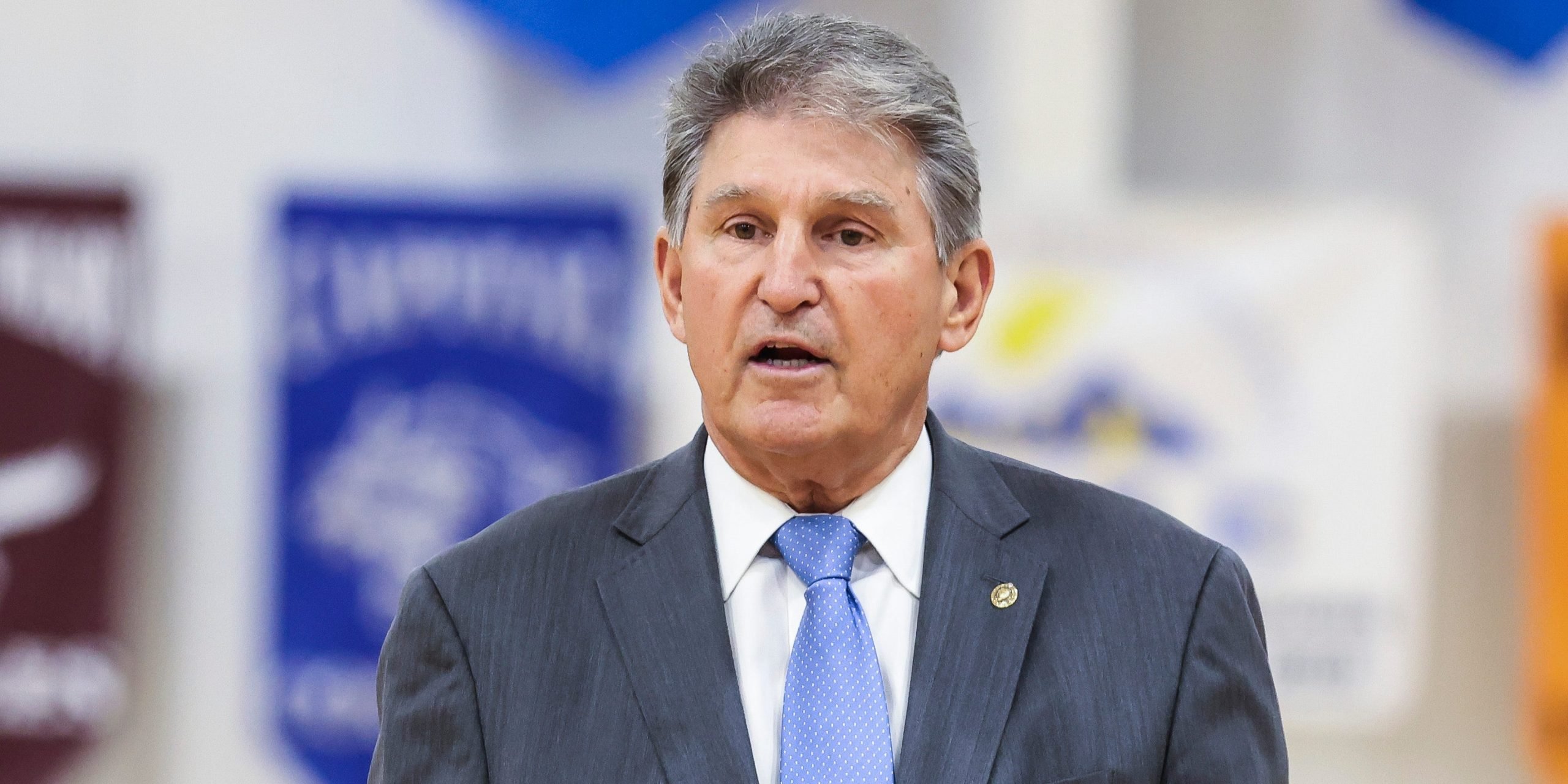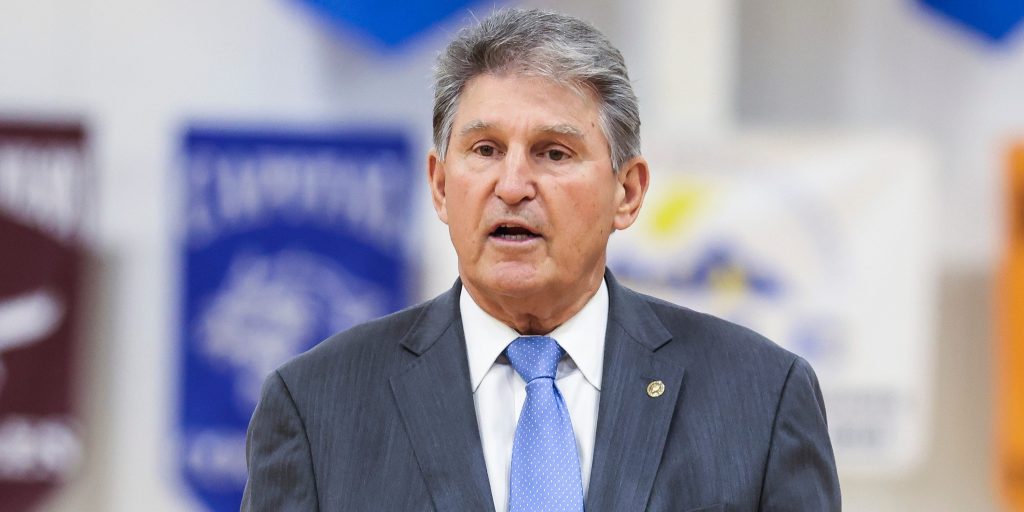
Oliver Contreras/The New York Times via AP, Pool
- Sen. Joe Manchin dug in on his proposal to require people work for the Biden child tax credit.
- "Tax credits are based around people that have tax liabilities," Manchin told Insider.
- Early research indicates that it helped cut hunger among families, including those in Manchin's state of West Virginia.
- See more stories on Insider's business page.
Sen. Joe Manchin of West Virginia dug in on pushing a new requirement that parents work in order to receive the child tax credit on Tuesday as Democrats struggled to get the $3.5 trillion social spending plan over the finish line.
"They know I feel very strongly about that. Tax credits are based around people that have tax liabilities," Manchin told Insider on Th. "I'm even willing to go as long as they have a W-2 and showing they're working, we've talked about that."
It comes two days after Manchin first suggested requiring people to work and file taxes as a condition to get the advance monthly payments. He said in a CNN interview that tying the child tax credit to those with jobs would ensure federal assistance would flow to "the right people." He maintained he supports child tax credits.
Democrats in the House and Senate, including Sens. Bernie Sanders of Vermont and Sherrod Brown of Ohio, on Monday poured cold water on the idea. Opposition to the idea on Tuesday grew from other Democrats as well. The party is laboring to assemble a party-line package that can garner the support of nearly every Democratic lawmaker.
"Adding a work requirement or other stipulations to the Child Tax Credit would hurt middle-class families," Rep. Suzan DelBene of Washington, chair of the 95-member moderate New Democrat coalition, said in a statement to Insider. "The Child Tax Credit is an important tax cut for middle-class families and in only two months is already having an incredible impact on American children."
She added the New Democrat group was "all-in" on extending the benefit.
Meanwhile, Brown told reporters on Tuesday, "I think that raising children is work."
The Democratic stimulus law in March turned the credit into a one-year cash benefit issued in monthly checks to the vast majority of families. Individuals who earn $75,000 or less are eligible for up to either a $250 or $300 direct payment per child depending on their age. Couples earning a combined $150,000 or less also qualify for the total check amount.
House Democrats are pushing to extend the revamped credit until 2025, and ensuring that low-income families who don't have to file taxes can permanently get the benefit. The current child allowance does not require individuals to have a job to obtain federal assistance.
But its unclear whether Senate Democrats will extend it with the same length and structure, given early resistance from Manchin.
Early research indicates the first month of payments kept three million children out of poverty and helped feed two million kids in July. Food insecurity dropped among West Virginians families as well, per an analysis last month from the West Virginia Center on Budget and Policy.

